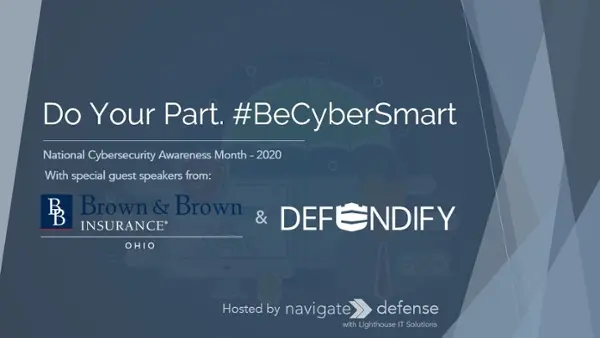Do Your Part. #BeCyberSmart
Cybersecurity Awareness
Is Your Network Up-To-Code?
Because it can only be as strong as its weakest link.
Our Secure-IT Cyber Smart Assessment is a self-assessment of your network! You can fill it out by yourself to understand if your company's network has any major issues, but we can help guide you through the assessment! We go over each section and focus in on those topics. Because all this tech stuff can be a bit confusing, we want to guide you through so that you can learn what everything is and truly understand the thing your company relies on every hour of every day. Again, your network is only as strong as its weakest link, and that weak point is almost never obvious.
Your Secure-IT Cyber Smart Assessment
(No forms, just click to download!)
Ready to upload it? Send it on over to us at info@lighthousesol.com!
Just a few easy steps to follow along with us this month:
- Download the Secure-IT Cyber Smart Assessment.
- Follow our socials so that we can help you fill the assessment out.
- Go through our resources (like our blog/podcast) to educate yourself further!
- Submit your completed assessment to receive our gift of FOUR FREE cybersecurity tools for your organization by sending it to info@lighthousesol.com!
- Let us go through your assessment and we'll get together to discuss what you are doing right, and what you need help with.
And because we care so much about your security, we may give your organization a FREE password manager license AND a Cybersecurity Essentials package with three more tools in it!
Webinar - Do Your Part. #BeCyberSmart
With Special Guests from Brown & Brown Insurance and Defendify!
It is the annual National Cybersecurity Awareness Month special and we hosted a webinar to disscuss the cybersecurity climate!

This year, we will be performing a simulated 'hack' so that you can gain a better understanding of how they are executed, but we will also have guests speakers from Defendify and Brown & Brown Insurance!